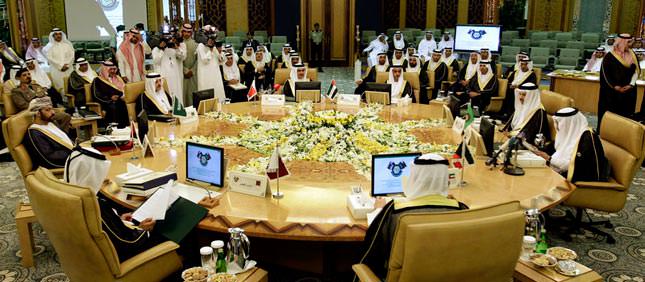Qatar resilient against presure

Diplomatic pressure by Saudi Arabia, the UAE and Bahrain on Qatar will not produce result due to the country's natural gas resources and portfolio of overseas investments, according to experts
ISTANBUL – Saudi Arabia, Bahrain and the UAE withdrew their ambassadors from Qatar on Wednesday, citing the country's meddling in regional affairs and failure to abide by a joint Gulf Cooperation Council (GCC) defense security pact. Untold was the countries' frustration with Doha's support for the Muslim Brotherhood. This latest diplomatic spat in the GCC surprised investors but prominent analysts expect diplomatic pressure to have a limited effect on the world's richest country. "Should investors be worried?It is notoriously difficult to predict the outcome of political pressure and change," said Nick Wilson, chairman of the Londonlisted Qatar Investment Fund. "However, investors can take comfort from Qatar's steadiness in the face of discordant voices.Tellingly, it has not withdrawn its ambassadors from Saudi, UAE and Bahrain."Wilson referred to Qatar's history of pushing policies and interests unaligned with its Gulf neighbors. "Consider the background," he said. "Qatar has a habit of pushing its progressive agenda to the irritation of its more conservative neighboring states elsewhere in the Gulf Cooperation Council region, neighbors who worry those progressive moves may lead to calls for change from their own people. Qatar was one of the first states to send military assistance to the Libyan rebels.Such disagreements are more regular than most of us realize, and rarely lead to significant impacts on economies." Qatar defended its foreign policy after Saudi Arabia and two other Gulf countries recalled their envoys. "Our policy is based on openness toward all, and we do not want to exclude anyone. The independence of Qatar's foreign policy is simply non-negotiable,"Qatari Foreign Minister Khalid al-Attiya said in remarks aired by Doha-based al-Jazeera on Tuesday. "Saudi Arabia's drive to make Qatar abandon its embrace of the Muslim Brotherhood may flounder because of the limited leverage the Saudis and their allies can exercise over the world's richest country," Glen Carey and Alaa Shahine wrote in an article for Bloomberg News. Qatar is economically independent from its neighbors. It traded more with Singapore in 2012 than it did with the three Gulf neighbors. With markets for its natural gas in the U.S. and Asia and a portfolio of overseas investments that includes stakes in Volkswagen and Barclays, Qatar is wellplaced to resist the diplomatic pressure. Notably, Qatar was the least affected country in the Gulf by the global economic crisis in 2008. "Direct economic leverage is of little impact," said John Sfakianakis, chief investment strategist at MASIC in Saudi Arabia. "Qatar could go it alone as long as the world is in need of gas and as long as they don't get all their neighbors to be their enemies."Qatar is the world's top producer of liquefied natural gas and its main customers are Japan, South Korea and India. Trade with Saudi Arabia and the UAE, the biggest Arab economies, was worth a combined $6.4 billion in 2012, according to data compiled by Bloomberg, less than five percent of Qatar's total. Qatar also has promising plans. The government is seeking to build the non-hydrocarbon economy, now growing faster than the economy as a whole. It has attracted the FIFA World Cup 2022 and is investing $150 billion to upgrade its infrastructure ahead of the event. Saudi Arabia and the UAE view the Brotherhood as a threat to their absolute monarchies. Qatar backed the Brotherhood in Egypt when it gained power in 2012.
Last Update: March 13, 2014 21:09
